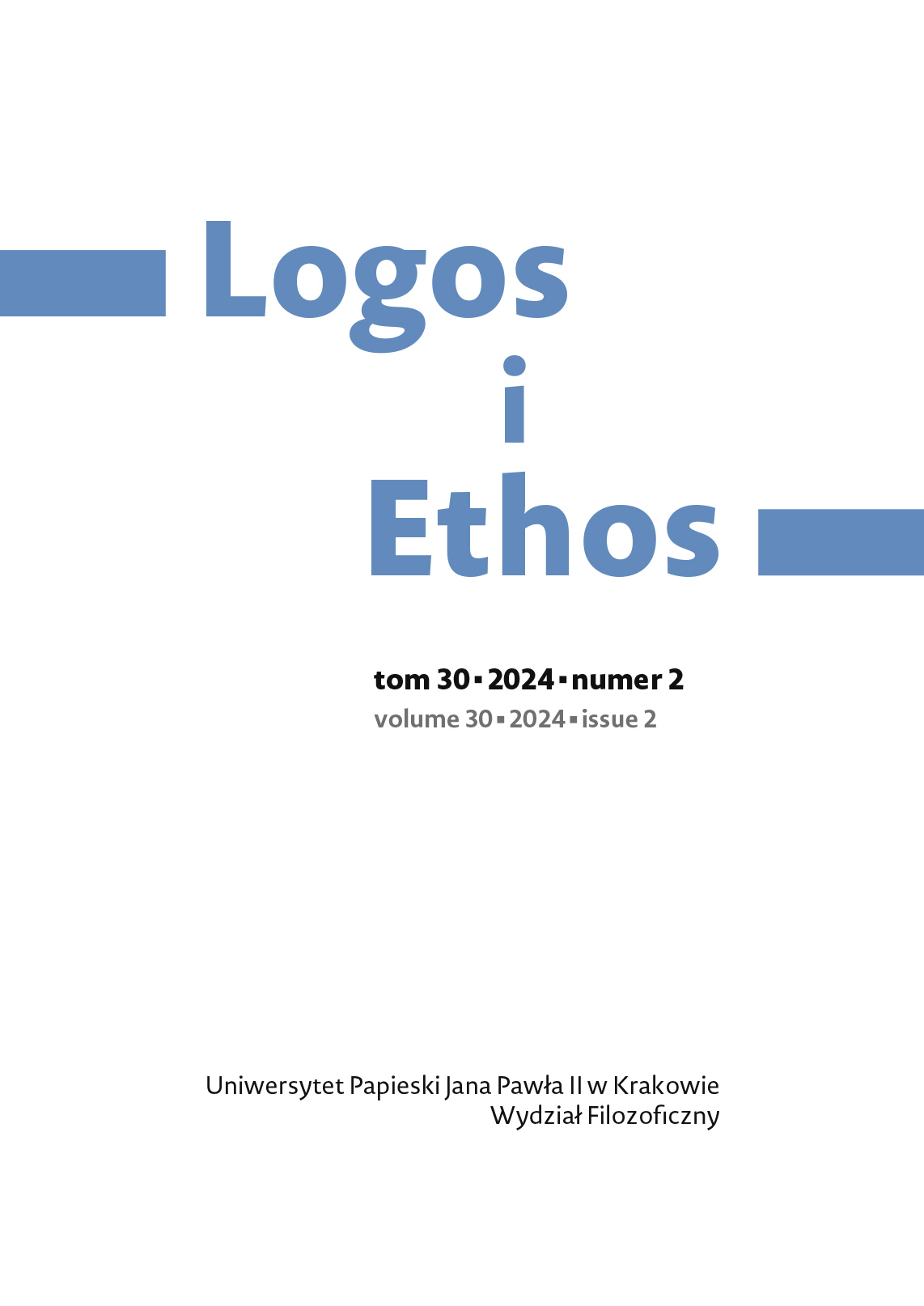A short treatise on climbing. A contribution to the philosophy of the mountains of Józef Tischner
DOI:
https://doi.org/10.15633/lie.30203Keywords:
mountain philosophy, eschatology, knowledge and its contexts, thought and mountain philosophy, mountain studies, death, Józef TischnerAbstract
The article examines “wierchowanie”, i.e. walking on mountain peaks (wierchy). The latter, the “locus ad quem” of climbing, a symbol with multiple meanings, is seen here as a metaphor with a double meaning: eschatological and cognitive. The interpretation of the summit metaphor is preceded by a reflection on the way in which the thinking inherent in the philosophy of mountains is concretized. The final section of the text focuses on the descent from the summit.
References
Balthasar H. U. von, Teologika, t. 1: Prawda świata, tłum. J. Zychowicz, Kraków 2005.
Barth K., Church dogmatics, vol. 3: The doctrine of creation, part 1, London–New York 1970.
Barth K., Church dogmatics, vol. 3: The doctrine of creation, part 3, London–New York 2009.
Barth K., Il tempo della rivelazione, Milano–Udine 2024.
Brandalise A., Simboli dell’ascesa e della discesa, w: Montagne mute, discepoli silenziosi. Percorsi di filosofia della montagna, a cura del gruppo „filosofia&montagna”, Padova 2013, s. 79–88.
Bukowski J., Fenomenologia i mistyka dobra u późnego Tischnera, „Zeszyty Naukowe-Akademia Ekonomiczna w Krakowie” (2006) nr 722, s. 23–30.
Dutka E., Góry wołają i milczą. O antropomorfizacji, personifikacji i prozopopei, „Prace Filologiczne. Literaturoznawstwo” 13 (2023), s. 67–80, https://doi.org/10.32798/pflit.960.
Dutka E., Wanderings and moments of pause: biblical motifs in „Mistyka gór” [Mountain Mysticism] by Roman E. Rogowski, „Roczniki Humanistyczne” 20 (2022), s. 115–130, https://doi.org/10.18290/rh22701.8.
Eliade M., Sacrum, mit, historia. Wybór esejów, red. M. Czerwiński, Warszawa 1974, s. 61–79.
Ferdek B., Chrystologia Romana Rogowskiego w kontekście mistyki, „Teologia w Polsce” 18 (2024), s. 67–79, https://doi.org/10.31743/twp.2024.18.1.03.
Jankélévitch V., La morte, Torino 2009.
Jankélévitch V., To, co nieuchronne. Rozmowy o śmierci, Warszawa 2005.
Karpiński P., Między nieuchronną skończonością a nieśmiertelnością. Vladimira Jankélévitcha i Józefa Tischnera dwugłos na temat śmierci, „Logos i Ethos” (2012) nr 1, s. 175–199, https://doi.org/10.15633/lie.205.
Kot D., Metaforyczność źródła w myśli filozoficznej Józefa Tischnera, „Zeszyty Naukowe UEK” (2016) nr 4, s. 49–63, https://doi.org/10.15678/ZNUEK.2016.0952.0404.
Langdon A., God the eternal contemporary: Trinity, eternity, and time in Karl Barth, Eugene (Oregon) 2014.
Nowicki A. S., Fenomen śmierci w ujęciu Ladislausa Borosa, „Śląskie Studia Historyczno-Teologiczne” 35 (2002), s. 252–264.
Oby wszyscy tak milczeli o Bogu! Z ks. Józefem Tischnerem rozmawia Anna Karoń-Ostrowska, Kraków 2015.
Plantinga A., Why climb mountains?, „The Reformed Journal” November 1969, s. 6–8.
Puczek E., Objaśnianie Biblii. Rozmowy z ks. Józefem Tischnerem, „Miesięcznik Społeczno-Kulturalny Śląsk” 6 (2000) nr 8, s. 54–55.
Rey G., Il Monte Cervino, Torino 1962.
Rogowski R. E., I uczynisz mi ołtarz z kamieni, Opole 1988.
Rogowski R. E., Mistyka gór, Wrocław 1983.
Sierotowicz T., Filozofia gór Józefa Tischnera. W poszukiwaniu metafory źródłowej, „Logos i Ethos” 30 (2024) nr 1, s. 38–52, https://doi.org/10.15633/lie.30104.
Sierotowicz T., Prolegomena do filozofii gór Jozefa Tischnera, „Logos i Ethos” 28 (2022) nr 1, s. 177–192, https://doi.org/10.15633/lie.59109.
Tischner J., Alfabet Tischnera, Kraków 2012.
Tischner J., Cudzy czas, w: J. Tischner, U źródeł myślenia, Kraków 2023, s. 347–358.
Tischner J., Historia filozofii po góralsku, Kraków 2018.
Tischner J., Inny, w: J. Tischner, U źródeł myślenia, Kraków 2023, s. 283–299.
Tischner J., Labirynty racjonalizmu, w: J. Tischner, Myślenie według wartości, Kraków 2011, s. 479–480.
Tischner J., Myślenie według wartości, w: J. Tischner, Myślenie według wartości, Kraków 2011, s. 527–545.
Tischner J., Myślenie z wnętrza metafory, w: J. Tischner, Myślenie według wartości, Kraków 2011, s. 510–526.
Tischner J., Nadzieja mimo wszystko, Kraków 2020.
Tischner J., Spór o istnienie człowieka, Kraków 2011.
Tischner J., Wokół spraw wiary i rozumu, w: J. Tischner, U źródeł myślenia, Kraków 2023, s. 209–227.
Tischner J., Wolność człowieka gór, Kraków 2021.
Tischner J., Świadectwo heroicznemu myśleniu, w: J. Tischner, Myślenie według wartości, Kraków 2011, s. 484–495.
Wolnikowski P., Mistyka nadwiślańska XX wieku i jej cechy charakterystyczne, „Studia Elbląskie” 19 (2018), s. 543–566.
Woźniakowski J., Góry niewzruszone. O różnych wyobrażeniach przyrody w dziejach nowożytnej kultury europejskiej, w: J. Woźniakowski, Pisma wybrane, t. 2: „Góry niewzruszone” i pisma rozmaite o Tatrach, red. N. Cieślińska-Lobkowicz, Kraków 2011, s. 5–330.
Ślósarska J., Hermeneutyka śladu i świadectwa w pismach ks. Romana E. Rogowskiego jako projekt egzystencji, w: Autorytety w perspektywie chrześcijańskiej, red. B. Bogołębska, M. Worsowicz, Łódź 2011, ss. 77–87, https://doi.org/10.18778/7525-592-8.07.
Downloads
Published
Issue
Section
License

This work is licensed under a Creative Commons Attribution 4.0 International License.
Authors who publish with this journal agree to the following terms:
- Authors retain the copyright and full publishing rights without restrictions, and grant the journal right of first publication with the work simultaneously licensed under a Creative Commons Attribution 4.0 International License that allows others to share the work with an acknowledgement of the work's authorship and initial publication in this journal.
- Authors are able to enter into separate, additional contractual arrangements for the non-exclusive distribution of the journal's published version of the work (e.g., post it to an institutional repository or publish it in a book), with an acknowledgement of its initial publication in this journal.
- Authors are permitted and encouraged to post their work online (e.g., in institutional repositories or on their website) prior to and during the submission process, as it can lead to productive exchanges, as well as earlier and greater citation of published work (See The Effect of Open Access).

